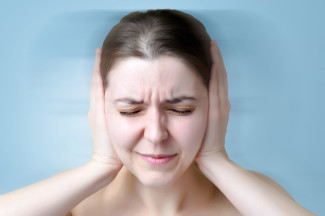
Johns Hopkins UniversityEst. 1876
America’s First Research University
Five Steps to Treating Tinnitus


Many people with tinnitus (TIN-i-tus or tin-EYE-tus) describe a ringing in the ear although it may also sound like buzzing, humming or whooshing. These sounds do not come from an external source but are caused by an internal dysfunction of the auditory system. More than 30 million Americans report tinnitus and it can be severe in 5 to 10 million. Management of tinnitus may sometimes be confusing, but the vast majority of people with tinnitus can be successfully treated.
- See an otolaryngologist, a physician specializing in disorders of the ear, to make absolutely sure that your tinnitus is not a symptom of a serious underlying disorder. Once you are certain that you are not at risk of an undiagnosed condition, you can relax and begin to deal with this bothersome symptom.
- The basics: reduce caffeine and stress. Both can make your tinnitus louder due to the effects of caffeine and stress hormones on neural activity. Exercise is great for stress and can improve your sleep.
- Avoid aspirin and NSAIDs, they can cause reversible tinnitus. Also be aware that some prescribed medications such as chemotherapy and some antibiotics and diuretics can affect tinnitus.
- Sound therapy. Sound therapy uses external noise to reduce the severity of tinnitus. If you also have a hearing impairment, hearing aids can help both conditions. Maskers are used to create a sound that blocks out your tinnitus and combination instruments do both. See your audiologist to discuss these options.
- Neurophysiology-based treatment. One of the more recent and effective methods to treat tinnitus, neurophysiology uses sound therapy along with intensive counseling to reduce the subconscious connection to tinnitus.
Thomas J. Balkany, MD, FACS, FAAP, is the Hotchkiss Professor and chairman emeritus of the Department of Otolaryngology at the University of Miami Miller School of Medicine. He is the coeditor of Clinical Pediatric Otolaryngology. His latest book, coauthored with Kevin D. Brown, MD, PhD, The Ear Book: A Complete Guide to Ear Disorders and Health, is available now.